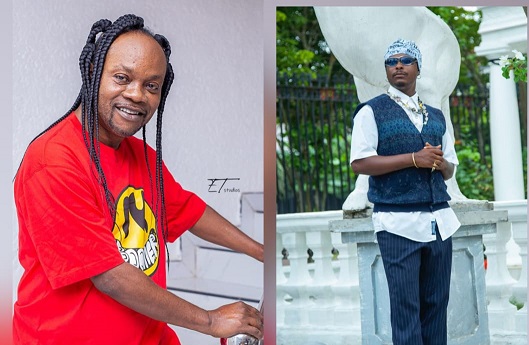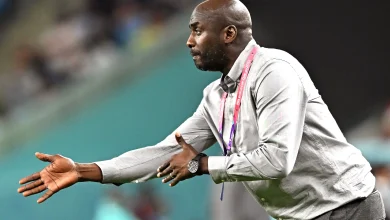From Highlife to Afrobeats: Ghana’s fight to reclaim its legacy

IF Afrobeats were a dinner party, Nigeria might be the host—delivering invitations, setting the table, and getting credit for the playlist. But Ghana, with its ancestral ingredients—Highlife, Hiplife, Azonto, polyrhythms born under baobab trees—is that quiet chef who invented the seasoning.
The question thrust into the conversation now: are we just watching someone else throw the party, or are we still the soul of the sound?
Roots, Branches, and the Seed of a Genre
Ghana’s musical landscape is older than many give it credit for. Highlife, which emerged in the late 19th /early 20th century in colonial Gold Coast, fused local melodies (especially from Akan and Ga traditions) with Western instrumentation—guitars, horns, brass bands—and early on became a marker of modernity, resistance, identity. It was the sound of Ghana finding its voice.
Many music historians point out that through Highlife, Ghana had its first large scale international musical successes. Bands such as Osibisa toured stadiums outside of West Africa, and E.T. Mensah was dubbed the ‘King of Highlife,’ celebrated across the continent.
Then came Hiplife, Reggie Rockstone’s clever blending of rap, dialect, street speech, and Highlife / Dancehall elements in the 1990s, which stretched the genre’s vocabulary. That laid fertile soil. Ghana’s musical DNA was already primed for the hybrid, for Afrobeats.
Why the World Thinks Afrobeats = Nigeria, & Why That’s an Oversimplification
Let’s be honest: Nigeria has had a huge hand in globalising Afrobeats. The market power, the streaming platforms, the massive promotional machinery—artistes like Wizkid, Burna Boy, Davido, Tiwa Savage, and so on—have become synonymous with the genre in global media. It’s not wrong to acknowledge that dominant commercial presence.
But here’s the pushback: many in Ghana feel that Afrobeats as a label has been narrow casted. Producer Beatz Vampire, for example, argued in 2023 that it’s wrong for the world to assume Afrobeats is purely Nigerian music. He stressed that artistes like Sarkodie, Stonebwoy, Shatta Wale—among others—have had substantial influence, and that the sound draws from multiple African traditions, including Ghana’s.
Another interesting twist: some argue Afrobeat (singular)—the Fela Kuti style of the ’70s, deeply political, jazz- and funk-inflected—is sometimes conflated with Afrobeats (plural), the contemporary pop/dance hybrid. The simplification in global discourse tends to ignore influences from Ghana, or treat them as footnotes.
Collaborations, Connections & the Global Web
If Ghana wants credit, part of the proof lies in cross-border collaborations and chart metrics.
• Ghanaian artiste Black Sherif’s Kwaku the Traveller broke out not only in Ghana but topped charts in Nigeria—becoming the first Ghanaian record to hit #1 on Apple Music Nigeria. It also charted on the UK Afrobeats Singles Chart and Billboard’s U.S. Afrobeats list.
• Amaarae, an American Ghanaian artiste, with the song Sad Girlz Luv Money (featuring Moliy and Kali Uchis), saw chart success in the U.S. Billboard Hot 100 and the UK, showing how diaspora connections and cross over influence are real and measurable.
• Ghana UK musical ties are also strong: artistes such as Sarkodie collaborated with UK rappers like Giggs (“Round 2”), or Yaw Tog working on remixes with Stormzy via others. These crossovers aren’t just cultural; they translate into streaming growth, tour opportunities, visibility.
Streaming data supports that global pull: a survey by Spotify in 2023 found that international collaborations are seen by fans as one of the key drivers behind Afrobeats’ growth. Ghana has recorded a 181 percent year over year growth in Afrobeats streaming since Spotify launched in the region.
The Struggle for Attribution & Ownership
You can’t talk about legacy without ownership—and that’s where Ghana’s fight is most visible right now.
• There are calls from industry voices that the term Afrobeats should be acknowledged as a pan African creation, not pigeonholed to Nigeria. Producer Beatz Vampire said this explicitly: “Afrobeats belongs to Africa.”
• There’s also debate over the origin of the name Afrobeats itself. A Ghanaian-Nigerian discourse suggests that Fela’s Afrobeat (without an ‘s’) may have first been named in a club in Accra, when Fela was visiting, in conversation with Raymond Aziz, per historical accounts.
Whether that story is fully documented or has been footnoted and sometimes forgotten, it shows how Ghana wants its part of the founding narrative to be visible.
• Fans, cultural critics and musicians often express frustration that documentaries or international media tend to highlight Nigerian stars and gloss over Ghana’s earlier innovators—Highlife legends, early Hiplife artistes, the Azonto movement—as if they were preamble rather than foundational.
Reclaiming the Legacy Without Neglecting the Present
Where does Ghana go from here?
1. Publicising & Archiving: More projects, documentaries, academic work to record Ghana’s contributions—Highlife history, Hiplife, early hybrid experiments. If not written, it risks being forgotten.
2. Recognition in awards & media: Ensuring that Ghanaian artistes, both veterans and rising stars, are acknowledged not just regionally but on international platforms, with clear credit for their roles in shaping Afrobeats.
3. Strategic collaborations: Not just feature once on a Nigerian track; but deeper co-creation, co-production, joint labels, diaspora bridges.
4. Intellectual property & cultural credit: Proper sampling credits, compensation, licensing—making sure Ghana’s sound, lyrics, melodies are not used as raw material without recognition.
5. Branding the narrative: Ghana must tell its own story—its own version of how Highlife led to Hiplife led to Azonto / local fusion, which seeded what we call Afrobeats today. Any global narrative that omits this is incomplete—and potentially misleading.
More Than Borrower, Ghana as Originator
Nigeria’s dominance of Afrobeats is not a scandal—it’s real, hard work, market manoeuvres, infrastructure, investment. But dominance doesn’t erase contributions.
Ghana was there from the beginning: the first fusion of Western and local instruments, the early bands, the rhythms that drifted into pop, the street dances, the slang, the melody patterns.
So yes, Ghana is fighting—not because it wants rivals to fold, but because it wants its story told fully. This is because the next time someone streams an Afrobeats chart topper, listens to its beat, taps their foot to its rhythm—they deserve to know: the pulse they feel didn’t begin at one place only. It began at many places, but Ghana made sure that some of those roots go deep, resilient, and unmistakably alive.



